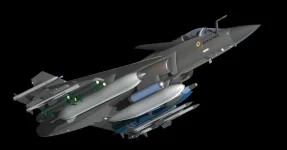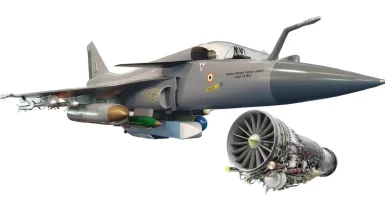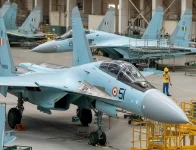- Views: 4K
- Replies: 40

Renowned defence analyst Bharat Karnad has issued a clarion call for the Indian government to take decisive action in accelerating the production of the Tejas Light Combat Aircraft (LCA).
In his recent column, Karnad, a Senior Fellow at the Centre for Policy Research, advocates for a bold strategy to break free from India's dependence on foreign military equipment.
Karnad's proposal centers on transferring the Tejas source codes from the National Aerospace Laboratories (NAL) and the Defence Research and Development Organisation (DRDO) to private sector giants like L&T, Tata, and Mahindra Aerospace.
He further suggests that the government should offer substantial incentives, such as tax holidays, to these companies to establish multiple production lines for the Tejas 1A and subsequent models, as well as the Advanced Medium Combat Aircraft (AMCA).
The aim is to achieve an annual production rate of 144 Tejas aircraft, fulfilling the entire requirement of the Indian Air Force within three years. Karnad believes this approach will address the chronic delays and bottlenecks that have plagued India's defence manufacturing sector.
By harnessing the capabilities of the private sector and providing the necessary incentives, the government can expedite the production of the Tejas and reduce the nation's reliance on foreign military equipment.
Karnad's call for action comes amidst a leadership transition at Hindustan Aeronautics Limited (HAL), with Dr. DK Sunil, a seasoned engineer, expected to take the helm.
Karnad highlights the historical challenges faced by HAL, including the underutilization of indigenous designs like the HF-71 Marut, in favor of foreign imports.
He cautions against repeating past mistakes and emphasizes the need for HAL to acknowledge its limitations and collaborate with the private sector to achieve the desired production goals.
The urgency of Karnad's proposal is underscored by the rapid advancements in aerospace technology. With 6th generation combat aircraft on the horizon, India cannot afford to fall behind.
Karnad's vision is to see India emerge as a self-reliant aerospace power, capable of meeting its defence needs and competing in the global market. He believes that involving the private sector and incentivizing production is the key to unlocking India's full potential in the aerospace industry.




